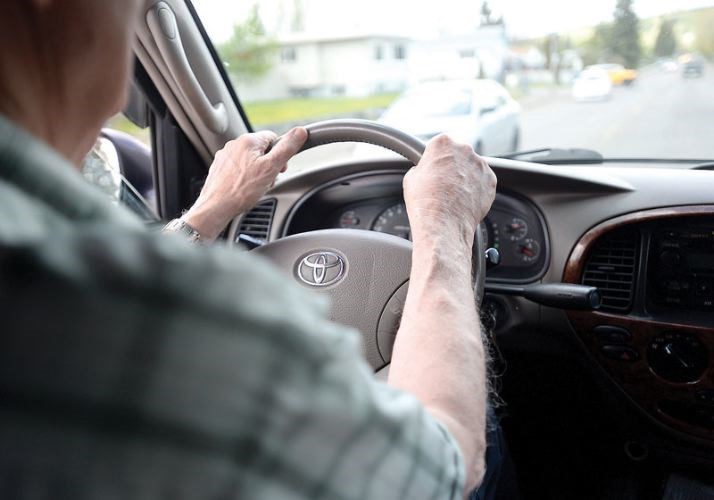Prince George Council of Seniors manager Lola-Dawn Fennell knew her days behind the wheel were numbered when she was driving through downtown Kelowna one winter evening and realized she couldn't tell the colour of the traffic light ahead of her.
"It was at that dusk sort of time when it's really hard to distinguish things at the best of times," Fennell said. "But I honestly couldn't tell what the light was ahead of me. I couldn't tell if it was red, green, amber or what...it was really terrifying."
Not only that, she still had to make her way back to her home in the Oliver-Osoyoos area.
"I ended up kind of depending on what the drivers were doing around me and hoping to hell I'd make it," Fennell said.
From that point on, she drove only during daylight and when the condition became a problem even then, Fennell voluntarily took herself off the road.
"You don't want me out on the road if I can't tell [the colour of the lights]," Fennell said.
To her relief, Fennell discovered there still is life after driving.
She moved to Prince George in 2004, living in residence at UNBC during her first year, and relied on the city's transit system to get around. At the time, there was no service after 5 p.m. on Saturday and no service on Sunday.
"The system has improved considerably in the last decade," Fennell said and added that once you know the schedule, it's not hard to get around.
In fact, she enjoys taking the bus.
"It takes me a little more than 20 minutes to get to work in the morning and 20 minutes to get back home at the end of the day and at the end of the day it's head-space changing time, so my head is no longer in work mode," Fennell said.
"I knit when I ride the bus and I can't begin to tell you how many incredible conversations I have with people and I just quite enjoy it."
But she also knows life without a car can be a "terrible shock" for some, particularly those who equate driving with independence.
As much can be said for Anne Hiebert, 71, who no longer drives because of macular degeneration, or a loss of eyesight in the center of her visual field. She now relies on her husband, John, to get around town - they live in College Heights but were attending a carpet bowling event at the Hart Pioneer Centre last Friday.
"It's a rude awakening to depend on somebody else to get to where you want to go," Hiebert said.
Asked what advice she would give those who are nearing the point where they will no longer be able to drive, Hiebert said they have to think of the other people on the road.
"If you can't see things, you're going to injure other people," said Hiebert.
The B.C. Automobile Association used to host workshops to help drivers adapt to age-related changes, review their own driving and learn how to keep mobile without the use of a car. But due to a lack of interest, they're no longer held in Prince George.
But in April, the BCAA launched a online toolkit to help at seniorsdriving.caa.ca. In part, it provides advice on assessing and maintaining driving skills and on the seven signs that someone should adjust his driving habits if not get off the road altogether.
Those signs include receiving two or more tickets, warnings or near misses in the last year, difficulty working the gas or brake pedals, missing stop signs or traffic lights, weaving between or straddling lanes, getting disoriented even in familiar places and being passed or honked at frequently even when traffic is moving slowly.
Ruth Blanke, 69, stopped driving 10 years ago and sold her car due to the medication she needed to cope with a bad back.
"After I got back surgery, I could've got another car but I figured I was living in town, right in the Bowl area, so I didn't need another car," Blanke said.
She now relies largely on a scooter to get around and said there is room for improvement in how the city is laid out for people like her.
"I try to ride in the bike lane but the city lets vehicles park in the bike lane and then you have to get right in the traffic, especially going down 10th Avenue," Blanke said. "And you know, the sidewalks, they're so rough that every time you go over a bump, it bothers my back.
"And sometimes you're going along and the sidewalk will end and there's no way to get off. So you have to turn around and go all the way back, get off the sidewalk and go on the road and take your life in your hands almost."
At 92 years old, Beth Coates stopped driving about a month ago due to failing eyesight and donated her car to the Kidney Foundation. Thanks to the city's transit system, Coates said the transition has been smooth.
"I wanted it to be my decision," Coates said. "I figured it was coming and I just felt it was time."



